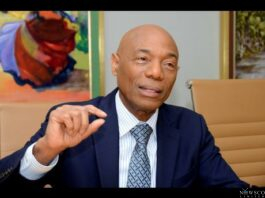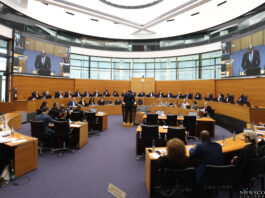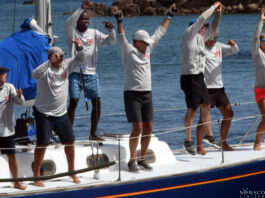Mehul Choksi tells Observer how he’s ‘haunted by the trauma’ of his abduction, who he thinks was behind it – and how his dreams of a peaceful retirement in Antigua have been shattered
By Gemma Handy
When you’ve made as many hair-raising international headlines as Mehul Choksi, there’s a tendency to become somewhat caricatured in the process.
This is after all a man accused of pilfering billions from one of India’s largest banks, hiding out in the Caribbean to escape justice and then faking his own abduction.
On paper it sounds more like a plot from an over-imaginative Hollywood director than something that has – for the most part – been played out in a sleepy residential area of Antigua.
So it’s with some surprise that Choksi in the flesh bears a closer resemblance to a benevolent grandfather than the oft portrayed wily, evasive crook who remains one of India’s most wanted fugitives.
Leaning heavily on his walking cane, he apologises for his weariness as he takes a seat in the compact kitchen-diner of a modest terraced house in Jolly Harbour.

The simple surrounds comprising one of the properties he apparently occupies are a far cry from the lavish pad one might expect given the magnitude of the charges against him. There’s a small patio outside with a splash pool, a smattering of Jain religious ornaments, a selection of teas on the counter.
Choksi is unblinking as he declares his innocence in the alleged US$2 billion fraud against the Punjab National Bank (PNB) for which his native India has long been seeking his extradition.
And he has one simple plea for the people of his adopted home: please believe me.
Later he tears up, more than once, when recalling what he dubs that “heinous heinous heinous crime”, referring to his apparent kidnap from a villa just a stone’s throw away.
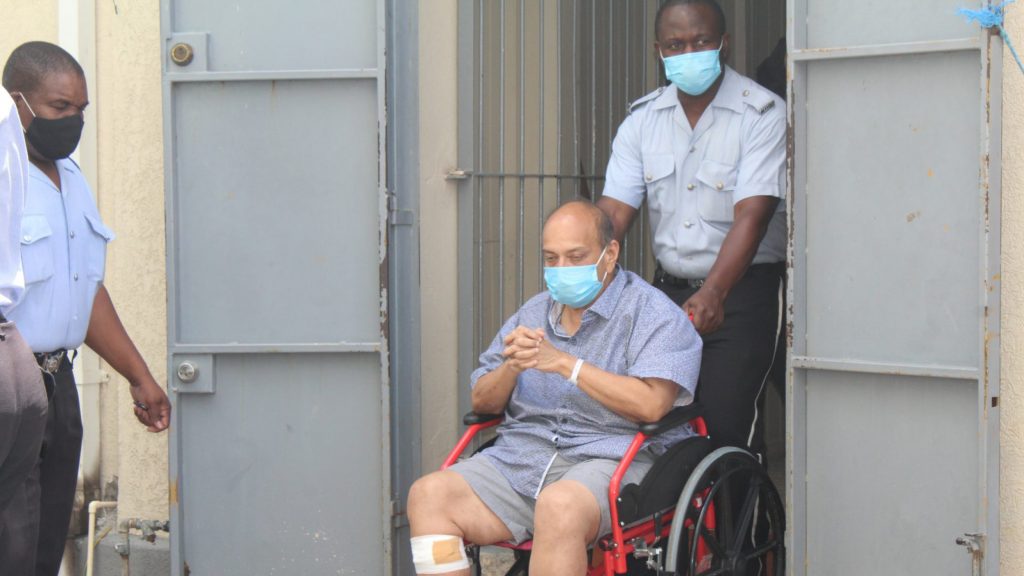
“It was so bad, so bad. Three months later I still wake up and I cry,” the 62-year-old says, breaking down. “I just collapse every day; every night it’s haunting me like anything.”
When asked what has been the worst aspect of recent months’ events, he’s unequivocal: his dream of a halcyon retirement in Antigua has been shattered.
“I retired here and I settled down here. When I arrived I was a free bird – I was always walking, walking, walking here on the island and I was trying to repair my health,” he imparts.
“Now the whole fun is lost. This is a very bad shock, a trauma.”
He doesn’t mince words when speaking about how he’s been depicted by the ever strident Indian press who he blames for many of his tribulations.
“From day one they say he’s a criminal and he’s this and he’s that. This is what Indian media is all about – it’s all trial by the papers,” he says bitterly.
“It is very important that people know the whole case. It’s a very simple, open and shut case; there’s nothing they can find against me.”
Many of the charges filed against him he claims have been “fabricated” to meet the requirements needed to extradite him. They include the alleged issuance of fraudulent letters of undertaking in his jewellery businesses’ favour causing major losses to the PNB. He is also accused of laundering the proceeds of crime in overseas accounts and other charges relating to cheating, criminal conspiracy and corruption.

Choksi leaves Dominica on a chartered flight 
Photos of a battered and beaten Choksi emerged shortly after he was discovered in Dominica 
Choksi on oxygen as he arrives in Antigua from Dominica in May (photo by Johnny Jnobaptiste) 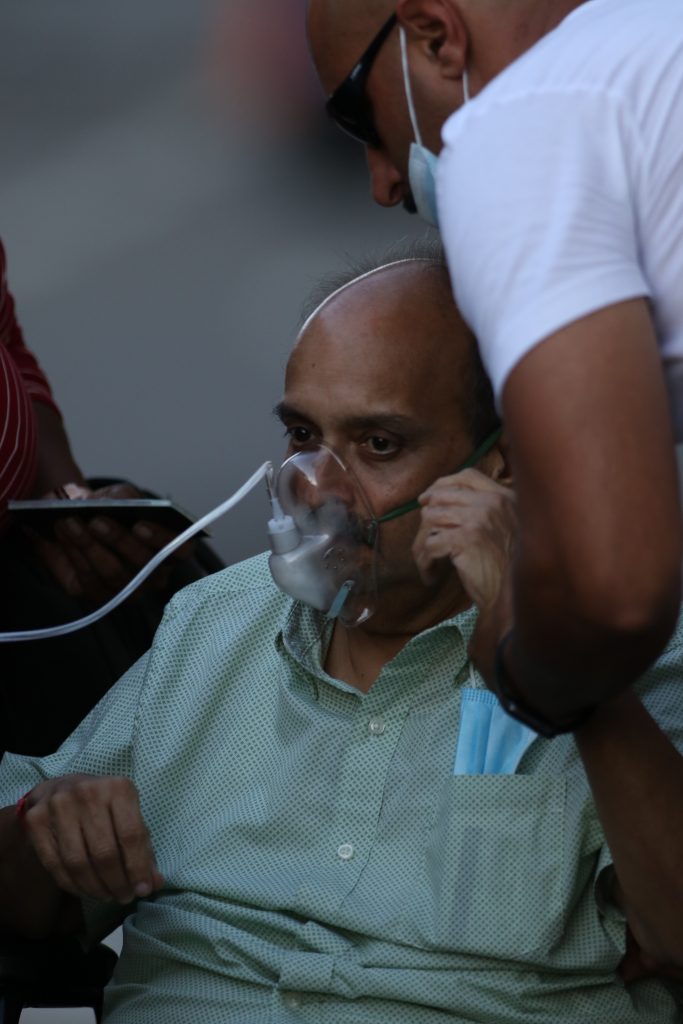
Choksi being assisted as he enters a taxi that would take him to his home more than a month after he claimed he was abducted and taken to Dominica (photo by Johnny Jno Baptiste) 
Choksi being escorted on wheelchair out of the V.C Bird International Airport, Antigua (photo by Elesha George)
In June, several new charges were added, ranging from destruction of evidence to forgery and falsifying of accounts.
“Wherever you are they will put the crimes accordingly; they add different charges, different things … so they can meet up with the extradition condition.
“But luckily I am citizen of Antigua and they should protect me in a right manner,” he says.
Choksi became an Antiguan and Barbudan citizen in 2017 via the citizenship by investment programme, before the proceedings against him came to light.
The Antiguan and Barbudan government previously announced its intention to strip him of his passport – but has also warned India that extradition proceedings are lengthy.
Asked how confident he is that he will be protected as a local citizen, Choksi says, “I hope so”.
“I certainly seek sympathy from every Antiguan here that understands my case; it’s very clear, very easy to understand – there was no default,” he adds.
Many have speculated that Choksi’s close ties to Indian Prime Minister Narendra Modi may have been his undoing. Choksi, owner of retail jewellery giant Gitanjali Group, has often publicly said the charges are motivated by political expediency.
They largely appear to relate to letters of credit being written by the PNB to Gitanjali’s suppliers of gold and other precious metals, guaranteeing them payment when Gitanjali did not have the requisite funds secured upon the company’s inventory.
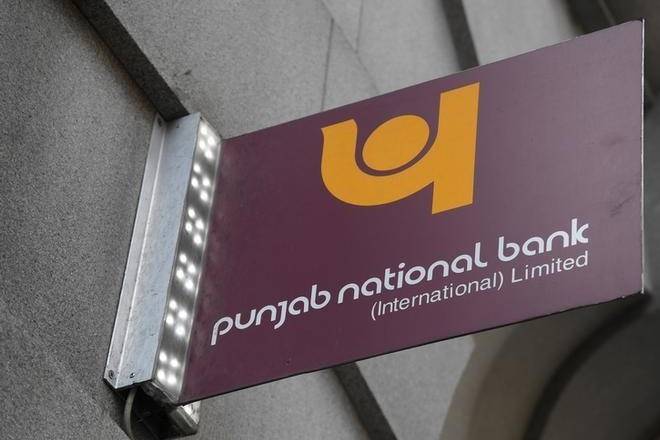
Insiders say the letters were not put on the bank’s books meaning PNB – the third largest government-owned bank in India – was secretly carrying the liabilities.
When the arrangement came to light, the letters of credit abruptly ended – resulting in Gitanjali’s collapse. Sources also say that paperwork showing the bank to have been party to such an arrangement mysteriously disappeared when Gitanjali was raided by the police.
Things might have dragged on interminably had it not been for Choksi’s sudden disappearance from Antigua in late May, before reemerging a day later in neighbouring Dominica. While some cynically suggested it formed part of a circuitous route to evade capture – despite the fact Choksi’s family were left behind and were the ones who informed police he was missing – others have pointed the finger squarely at India.
“Well of course it was the Indian agencies, no question about it,” Choksi says, adding that he is convinced Dominica – which accused him of illegally entering its borders – was complicit too.
Asked what role he thinks the Antiguan government might have played, he’s rather more circumspect.
“I wouldn’t like to comment on this matter; it is not right for me to say anything,” he says quietly.
“But I was hurt by the comments that were made about me,” he continues, referring to allegations that he had concocted a story about being abducted to save his skin.

Choksi was eventually returned to Antigua in mid-July amid concerns for his health for which he is being treated locally.
It is not clear if the Dominican authorities still intend to pursue the illegal entry charge. Sources say it remains a live issue but that it’s unlikely Choksi will be required to return to the nature isle to answer to it.
Spokesman for the Antiguan police, Inspector Frankie Thomas, confirmed that investigations into the apparent kidnap remain underway at this end.
Michael Polak, the British lawyer who has been assisting Choksi from the UK, travelled to Antigua earlier this month to make further inquiries.
He tells Observer he was struck by the contrast between the ostensibly violent abduction and the “beautiful and peaceful” setting in which it apparently occurred.
Much of Polak’s role relates to the fact British nationals were allegedly involved in Choksi’s kidnap.
Three of those said to be behind it made a previous trip to Antigua in April – a month before the incident took place – in what some say was a reconnaissance endeavour. Two of the team – British Indians residing in Birmingham, England – took a boat to Dominica but were denied entry on suspicion of being involved in human smuggling for reasons that remain unclear.
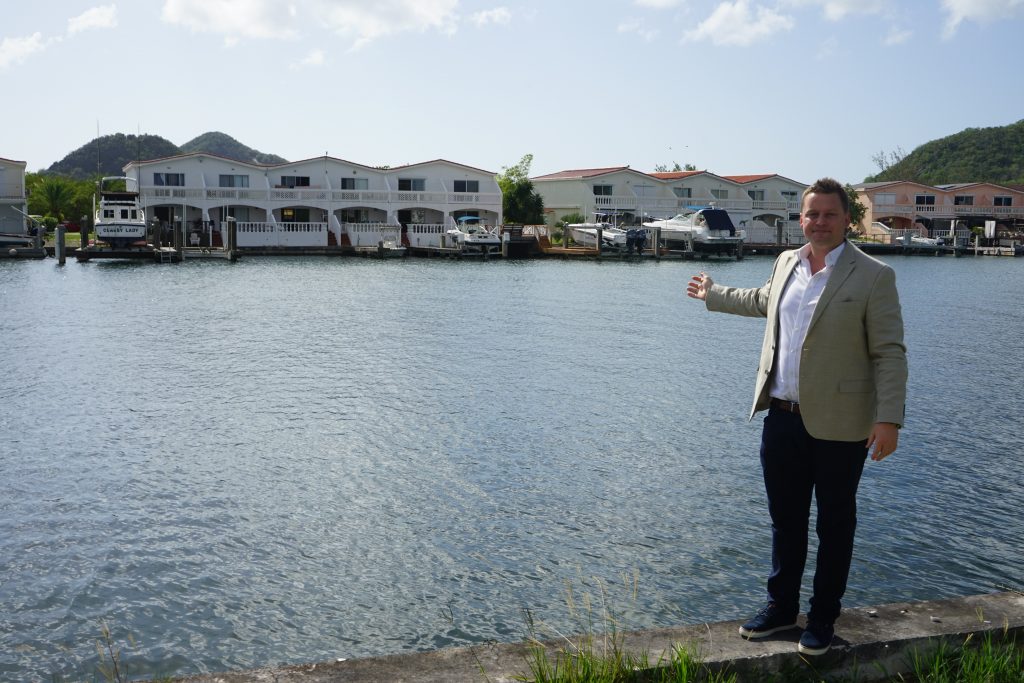
Two side-by-side Jolly Harbour villas, owned by a local businessman, were booked for the May trip – one of them via AirBnb by Barbara Jarabica, the Hungarian woman said to have befriended Choksi over the course of some months.
She is said to have specifically requested a property with space for a small boat to dock.
The adjoining villa – whose grounds are separated by a low wall – was booked by UK-based travel agency Skylord Travel. Jarabica has not responded to several requests by Observer for comment, although she has told Indian media that while she and Choksi had indeed become good friends, she played no role in the abduction.
Calls to Skylord for clarification were answered by a call centre in India; Observer was told the Birmingham office which apparently took the booking was closed indefinitely due to the pandemic while emails to the company’s owner went unanswered.
The Antiguan businessman who owns the villas told Observer he had already supplied information to local authorities probing the abduction, and declined to comment further.
Jarabica had become a close companion of Choksi with the pair regularly taking evening strolls around the Jolly Harbour neighbourhood. Polak says she had been “very insistent” that Choksi dine with her on the evening of May 22; a request he rebuffed because he was fasting at the time.
He instead agreed to see her on May 23.
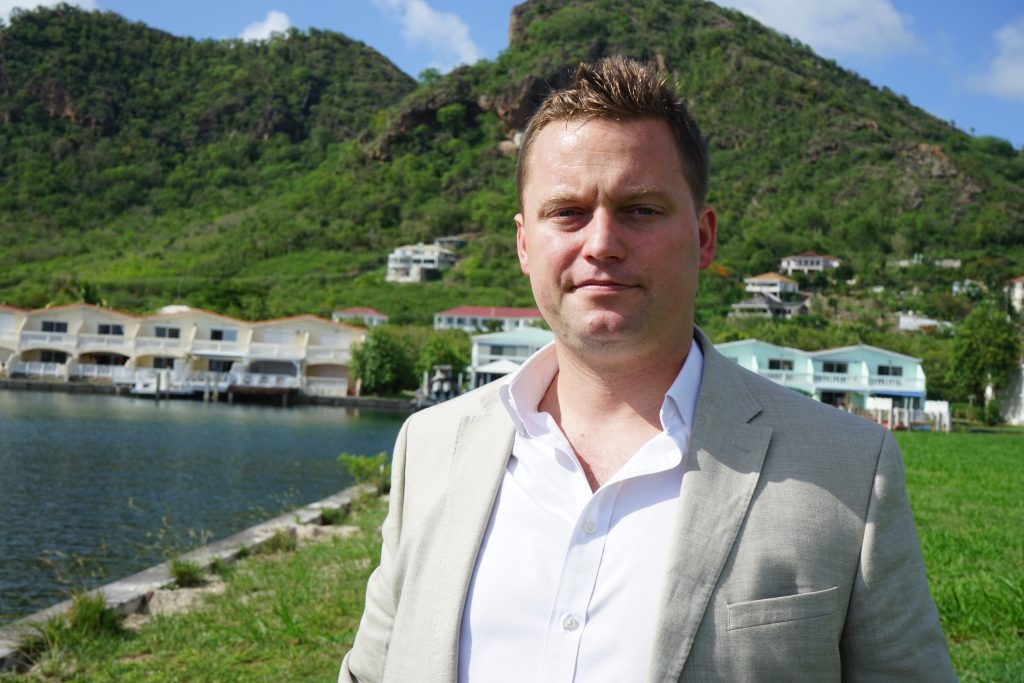
He went round there in the evening, a little after 5pm; they were supposed to go for a walk,” Polak explains.
“Barbara invited him in, saying she was just finishing a glass of wine. He did so and that’s when he was attacked.
Choksi is said to have been Tazered about his body and threatened with a kitchen knife by assailants who burst in from the adjoining villa, before being strapped to a wheelchair and gagged.
He was placed on board a small boat, which transferred him a short time later to a larger vessel for the 120-mile journey to Dominica.
As the boat approached the port at Cabrits some hours later, Dominican officials are said to have met the vessel and taken Choksi immediately to police custody. Further contention ensued when he was denied access to a lawyer for several days. When attorneys were finally able to speak with him, Choksi was found to be badly beaten with swollen, bloodshot eyes.
As far as Polak is concerned, the entire series of events is “an international scandal”.
“This is clearly an endeavour arranged by Indian intelligence using a UK-based group with British, Hungarian and Caribbean nationals,” he tells Observer.
“This is one of the most serious crimes to have happened in Antigua in recent times. We hope that everything is being done to bring to justice those responsible for the kidnap and torture of Mr Choksi during his horrendous ordeal.”
In Dominica, precisely where culpability lies depends on which side of the political fence one sits, says local radio show host Loftus Durand.
“Dominica, like Antigua, is polarised politically. Opposition supporters are very much inclined to agree that Choksi was abducted; government supporters say he was not,” Durand explains.
“However, a lot of people who are level-headed want to believe Mr Choksi’s side of the story and are asking for more investigation into it,” he adds.
Dominican police did not respond to repeated requests for comment but the island’s Prime Minister Roosevelt Skerrit has said claims his country played any part in the abduction are “total nonsense”.
Meanwhile, Lionel Hurst, chief of staff in the Antigua and Barbuda Prime Minister’s Office, confirms India is still actively seeking to extradite Choksi and tells Observer the government is “cooperating fully”.
However, because Choksi has been fighting revocation of his Antigua and Barbuda citizenship, the legal proceedings could drag on for several years, Hurst adds.
For Choksi’s own part, he claims he was willing to go to India to speak with investigators – although he admits to now having fears for his wellbeing. He has also raised the prospect of Indian investigators speaking with him in Antigua.
“I would be very worried about my safety in India as you can see how they treat me from this kidnapping – maybe I would be killed – but I am completely welcoming for them to speak to me where I am safe.
“Of course my intention was always to go there,” he says, maintaining his stance that the case against him is politically motivated and that he – once one of India’s largest jewellers – would welcome the chance to clear his name.
Finally, asked how he feels about his place in Antigua now, the peaceful country in which he says he’d hoped to settle for the remainder of his years but in which – if his story is to be believed – is the scene of the single most terrifying ordeal of his life – he breaks down again.
“It’s very sad,” he says through tears, adding, “But I have met death now – I don’t fear it anymore.”


